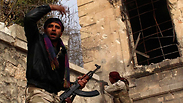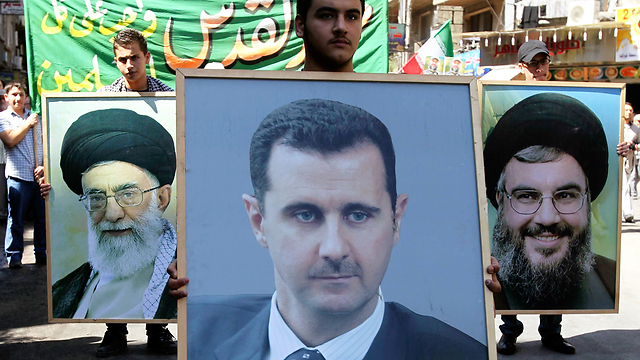
Tripoli, like much of Lebanon, is divided along sectarian lines and is only 30 miles (50 km) from the Syrian border. Its majority Sunni Muslims, who back the Syrian rebels, often clash with the minority from Assad's Alawite sect.
Two gunmen were wounded in overnight clashes between fighters from the Sunni district of Bab al-Tabbaneh and the Alawite neighborhood of Jebel Mohsen and died of their wounds, the sources said. Three civilians, including an elderly man, were shot dead by snipers on Friday, they said. Eleven others were wounded.
Lebanon's population is deeply divided over the Syrian war. Shi'ite militant and political movement Hezbollah and its allies support Assad while many of the country's Sunnis back the revolt.
Tripoli's Sunnis and Alawites have clashed sporadically for decades but the Syrian conflict has worsened tensions, with each side accusing the other of using the city as a base for sending fighters and weapons in and out of Syria.
The problem is felt not only in Tripoli but also from the Lebanese border town of Arsal. The town is predominantly Sunni Muslim and the neighboring town of al-Labwa is Shi'ite. Their fate shows just how dangerous the war in Syria has become for Lebanon as it still recovers from its own civil conflict.
Over the past three years, tens of thousands of Syrian refugees have more than tripled the population of Arsal.
Nowadays in its hilly streets, residents and refugees curse Hezbollah, the powerful Lebanese Shi'ite political and military movement whose fighters helped President Bashar Assad seize the town of Yabroud across the border this week.
Yet just 5 km (3 miles) down the hill in Shi'ite al-Labwa, Hezbollah's leader Hassan Nasrallah's face beams from billboards as residents denounce radical Islamists they say locals are letting use Arsal as a base to attack Shi'ites.
The towns have become a nerve centre of communal conflict in the country - a flare-up in tensions this week quickly set off protests across Lebanon in which at least one person died.
The two sides agree on little except that the situation is volatile, that the other side is to blame, and that the Lebanese army is not up to the task of restoring order.
"Hezbollah is the entire problem," Arsal's mayor Ali al-Hujeiri said in an interview this week.
"When one of their people gets martyred in Syria - we should only speak good of the dead, so we'll say 'martyr,' no matter who he was - when they lose in Syria, they make problems on the road from al-Labwa."
Hujeiri himself is wanted by the Lebanese government for alleged involvement in the murder of soldiers in the Arsal area, but in a sign of the limited state authority there, he has not been arrested.
There are now more than 100,000 refugees in Arsal, Hujeiri said, compared to the original population of about 40,000. Camps of plastic tarp and wood cover nearby hillsides and fields, practically constituting parallel towns.
In Arsal itself, young bearded men on motorcycles, some decorated with images of a black-and-white Islamic battle flag affiliated with hardline Islamist groups, clog the narrow, dusty streets.
Fighting across the border this week has made the situation in Arsal even more desperate and showed how quickly Syria's conflict can spill over and metastasize inside Lebanon.
The troubles kicked off on Sunday, when Syrian government forces backed by Hezbollah seized Yabroud, about 15 km from the border, severing one of the last rebel arteries into and out of Lebanon.
Within hours, a car bomb claimed by a hardline Sunni group went off in the Lebanese town of Nabi Osmane, killing at least three people and prompting men from al-Labwa, a stronghold of Hezbollah supporters, to pile sandbags on the road running uphill from their town to Arsal.
The closure severed Arsal from its only connection to Lebanon and set off demonstrations across the country by protesters who blocked roads, burned tyres and decried what they saw as a "siege" imposed by Hezbollah to punish the Sunni town.
One man was shot dead during the demonstrations, which ended on Wednesday when the army brokered a deal for the road to be opened and troops to deploy in Arsal.
Now, the military's Humvees and armored personnel carriers mix with battered trucks and pickups on Arsal's streets and any Syrian rebel fighters who are in town are keeping a low profile. But few expect the calm to last.
"We all love the army here and support it fully," said one 56-year-old resident named Mohamed. "But the army - the army is in too deep. The army isn't able to fulfill the role it needs to fulfill."

















